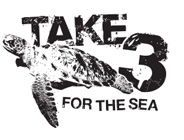Ocean news
1. 40 dolphins wash ashore in Mauritius oil spill area
At least 40 dolphins have died following an oil spill off the coast of Mauritius that occurred on July 25, 2020. A Japanese oil tanker ran aground on a coral reef and spilled 1,000 tons of fuel oil into surrounding waters. A government report confirmed the death of 26 dead melon-headed whales as well as one bottlenose dolphin.
Jan Sok Appadu from the Mauritius fisheries ministry said that 38 carcasses had washed up onto the beach so far. Witnesses also reported to The Guardian of other deaths, including a chilling report of a mother dolphin struggling in front of a boat before sinking into the water.
“We heard cries, I thought it was a woman on the boat – but they told me, no, it was the dolphin,” said Reuben Pillay to The Guardian, who witnessed the dolphin’s death.
Greenpeace has urged authorities to “carry out a swift, transparent and public autopsy on the bodies collected”. So far, autopsies have been performed on 25 dolphins. Results are expected in the coming days.

2. Morrison government introduces Recycling and Waste Reduction Bill 2020
On 27 August 2020, the Morrison government introduced the Recycling and Waste Reduction Bill 2020 into Australian parliament.
The introduction of the new waste management policy came with posts on social media from Prime Minister Scott Morrison wherein he addressed the ways that Australia’s waste management systems have failed in the past.
“Currently Australia ships some 645,000 tonnes of our unprocessed plastic, paper, glass and used tyres overseas every year. This has to stop. Much of it, while legitimately recycled and that’s good. But too much of it, particularly plastic, it ends up in waterways, oceans, polluting our environment,” he said via a video posted on Facebook.
“At the National Plastics Summit earlier this year in March, I said “It’s our waste, it’s our responsibility”. And that means we have to do something about it. And that we were going to take responsibility for doing just that. And today I’m delivering on that promise.”
The Recycling and Waste Reduction Bill 2020 follows up on agreements made in March between Commonwealth, state and territory governments on banning exports of waste plastic, paper, glass and used tyres. The legislation also addresses the regulation of “the reuse, recycling and recovery of waste material in an environmentally sound way”. Ultimately, the legislation aims to provide a framework for Australia to work within in order to reduce the impacts that waste has on human health and the environment.
“Too much plastic is ending up in our oceans and rivers. When I talk to kids in schools, it’s one of the things they always talk to me about. We have to clean up our waterways and we’re getting serious about making that happen,” said Scott Morrison in a Facebook post.

3. Seagrass a ‘secret weapon’ in the fight against climate change
Covering only 0.2% of the seafloor, seagrass, also known has eelgrass, accounts for 10% of the ocean’s capacity to absorb carbon. The United Nations Environment Programme calls seagrass the “secret weapon” in the fight against climate change.
Not only does seagrass help to reduce greenhouse gases, it acts as a safe place for marine life to reproduce and feed, while cleaning the ocean and absorbing pollutants in the water.
Seagrass coverage continues to decline around the world despite vocal concerns from ecologists and experts in marine science fields. “Seagrass meadows are rapidly disappearing in many parts of the world,” said UNEP marine ecosystems expert Gabriel Grimsditch, “The impact of the one billion or more people who live within 50 km of them is largely the cause, including damage from coastal development and degraded water quality from nutrient pollution. Annual rates of decline have accelerated, with loss rates comparable to those of coral reefs and tropical rainforests.”

4. U.S. commits to a functioning circular plastics economy by 2025
More than 60 brands, retailers, government agencies and NGOs in United States of America have collaborated to advance all plastic packaging to become reusable, recyclable, or compostable by 2025.
On 25 August 2020, The U.S. Plastics Pact, a collaborative led by The Recycling Partnership and World Wildlife Fund (WWF), published a media release sharing their cross-industry commitments to propel plastics production toward a circular economy model in under five years.
“Together, through the U.S. Plastics Pact, we will ignite systems change to accelerate progress toward a circular economy,” says Sarah Dearman, VP of Circular Ventures for The Recycling Partnership. “As the lead organization that engages the full supply chain to advance circularity in the U.S., it’s a natural fit for The Recycling Partnership to further collaborative action with other industry leaders to create substantial, long-lasting change for the betterment of our planet. The results from the U.S. Plastics Pact’s efforts to advance packaging, improve recycling, and reduce plastic waste will benefit the entire system and all materials.”




